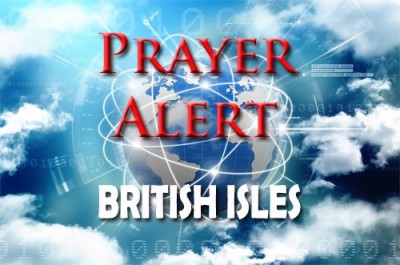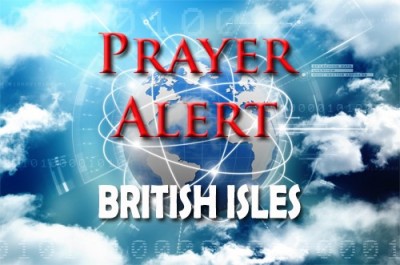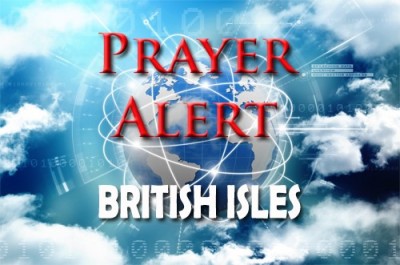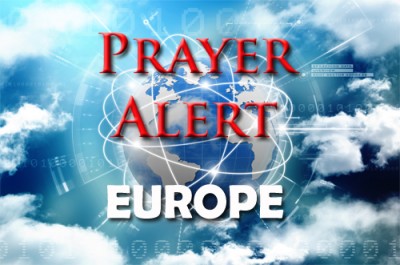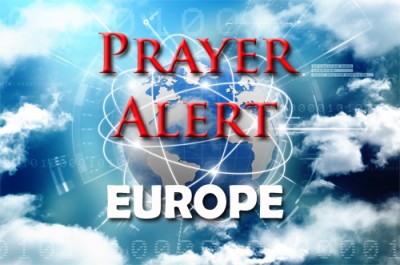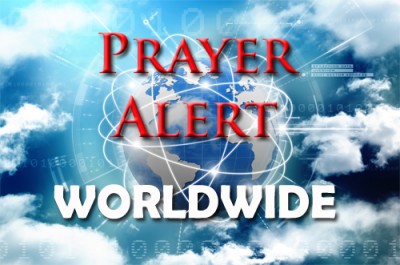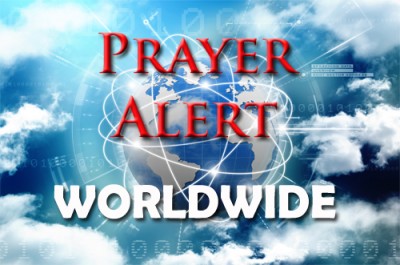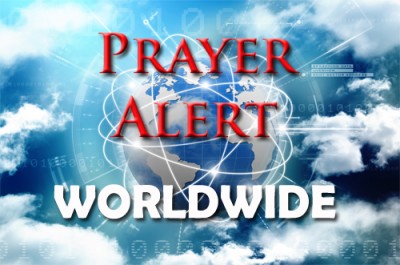Prayer for government and monarchy
22 Oct 2020The following is based on a prayer by Passion for the Nation. ‘Father, we ask for a fresh alignment of the words and thoughts of our leaders, local and national, with Your will, that in these days, ancient divisions from nation to nation, or region to region, will decrease, and necessary changes will take place. Please release healing into the North / South divide. We ask forgiveness for the words that have been spoken from offence, fear or anger, and we ask for a spirit of reconciliation, that longstanding wounds caused by political decisions or inequalities of lifestyle will not be exacerbated by current issues. Now Lord, we thank You for the life of our Queen, Elizabeth II, and her heart for You and her people and for the wisdom, righteousness and integrity reflected in her life. In this pandemic season we ask for your protection, strength and health for her and Prince Philip and for other members of the royal family.’
Abortion: day of prayer
22 Oct 2020On 27 October Christians will pray for the unborn children who will not reach their God-given potential. Since 1967 9.5 million babies have been aborted in the UK. Every three minutes, a precious life is destroyed. Our nation has one of the most liberal abortion laws in Europe. Pray for the Church to make her voice heard for the lives of our youngest ones. Cry out that she will have God’s heart on this issue, for deep repentance, and a compassionate, decisive move to stop this evil from spreading further in our land. Pray for workers providing abortion to have a change of heart and mind. https://www.worldprayer.org.uk/blog/day-of-prayer-about-abortion Also the pro-abortion argument has raged for over a century. Offensive pro-abortion slogans include, ‘What makes you religious fanatics think you can tell me what to do with my uterus?’ Pray for communities to recognise infant loss and heart-break that follows abortion.
Education secretary Gavin Williamson has urged British university vice-chancellors to adopt the international definition of anti-Semitism. He warned them that he would act if ‘the overwhelming majority’ of universities had not adopted the International Holocaust Remembrance Alliance (IHRA) definition of antisemitism by the end of the year; they could even have ‘funding streams’ suspended. He said it was disturbing that a recent survey by the Union of Jewish Students showed only 29 out of 133 universities had adopted the IHRA definition, and 80 said they had no current plans to do so. Mr Williamson said, ‘The repugnant belief that anti-Semitism is somehow a less serious, or more acceptable, form of racism has taken insidious hold in some parts of British society. I am quite clear that universities must play their part in rooting out this attitude and demonstrating that anti-Semitism is abhorrent.’
In response to protests which began on 9 July, Boyko Borisov proposed reforms to the constitution which have been decried by protesters as a means of keeping his government in power until the next elections. Rallies have been mostly peaceful, but there have been occasional clashes with police and some arrests. Transparency International ranks Bulgaria as the most corrupt of the 27 nations in the EU. The economy is said to be one of the poorest in Europe, mainly due to corruption. A 2019 report on corruption in Bulgaria said that at least 35% of public procurement contracts involve corrupt practices. Currently the European Parliament is discussing the ongoing anti-corruption protests, after some of the movement's leaders sent letters to Brussels requesting support, but the Bulgarian government isn't backing down. See
The Taoiseach has said that despite introducing what was probably ‘Europe's strictest regime’ it was not enough to reduce levels of infection significantly. So for the next six weeks people must stay at home. Those who can work from home must do so. People can meet outdoors with one other household. No social or family gatherings are allowed in homes or gardens. Pray for peace of mind to replace loneliness. Caring and compassionate visits can continue. Those living alone or parenting alone will be able to pair with another household as part of a ‘support bubble’. People may stay away from home for exercise within a 5km limit. Non-essential shops and all hairdressers must close, and bars and restaurants are limited to takeaway services. Pray for safe social distancing, and for optimism for the future to replace anxiety. Pray also for small businesses on the edge of bankruptcy as they plan for a bleak financial future.
China: prayer needs
22 Oct 2020Mission organisations say that the church is the largest social force in China not controlled by the Communist Party, and the Communist government prohibits large meetings and non-communist social media sites. They are also ‘rewriting’ the Bible to reflect the government’s communist worldview. Ask God to bless church leaders with supernatural wisdom and increased unity with one another (1 Corinthians 1:10). Ask Him to move powerfully in the lives of the victims of flooding that displaced millions and killed hundreds recently. Pray for the young generation of Chinese to experience a hunger for truth and freedom that leads them to salvation (Luke 6:21). Also hospitals in Xinjiang Province must abort and kill all babies born in excess of its mandated family planning restricting ethnic minorities to three children including full-term new-borns. In addition to forced birth control and sterilisation, religious minorities are subject to massacres, internment camps, torture, organ harvesting, and disappearances. See
USA: Over 1,600 faith leaders back Biden
22 Oct 2020Practising Christian Joe Biden, the Democratic presidential candidate, has been endorsed by the largest group of clergy in modern history. His endorsements mainly come from Catholics, evangelicals and mainline Protestants, including Billy Graham’s granddaughter Jerushah Duford, former US ambassador for religious freedom Susan Johnson Cook, Michael Kinnamon, former general secretary of the National Council of Churches, and former gay episcopal Bishop Gene Robinson. ‘This record-breaking group of endorsers shows that President Trump’s lack of kindness and decency is energising faith communities and will cost him this election’, said the director of the Christian campaign organisation Vote Common Good, which compiled the endorsements. Anti-abortion Republicans defecting from Trump are voting for Biden this year. Four years ago, religious voters looked the other way to give Trump a chance, but after witnessing his cruelty and corruption, a growing number are turning away from him. Biden has frequently spoken of how his faith has sustained him through challenging times.
Syria: Centres of Hope
22 Oct 2020Centres of Hope are Christian schools open to anybody regardless of faith background. They want to show Jesus’s love to the community, and they don’t attach conditions to entry. But they do want to make sure that they show Jesus as the real source of hope. Young children and teenagers do separate activities. The young ones dance and sing songs about Jesus and watch biblical stories and funny sketches by staff. The teenagers watch a Christian movie and then discuss it. But like everywhere, Syria has taken measures to prevent coronavirus spreading. Many centres temporarily closed, and staff refocused efforts towards humanitarian and emergency aid. Now the centres are re-opening, and they are praying that they will reach even larger numbers of children to show them the love of God and to tell them the good news of salvation.
